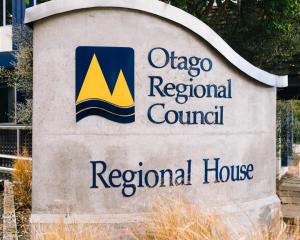
It is never fair when an unexpected, incurable condition is diagnosed but when a multi-lingual woman is told she will ultimately lose the power of speech it seems especially cruel.
Hana and Peter Williams met in Zurich. Mrs Williams is of Ethiopian and Swiss descent. Mr Williams was bought up on the West Coast.
The couple met while Mr Williams was on his OE more than 45 years ago. They lived in Ethiopia for 10 years while their two daughters were young. They eventually settled in Queenstown before recently moving to Clyde.
During lockdown the Williams’ realised something was not quite right with Mrs Williams. She was finding it hard to say what she wanted, was less spontaneous and had become withdrawn.
It was quite a journey to find out what the problem was, Mr Williams said.
Their GP diagnosed depression and anxiety. However, that did not sit well with the couple. They changed doctors and kept searching, even though they went down a number of dead ends.
"The system can be a daunting path if you don’t know what you have," he said.
They went from Queenstown to Napier in 2021 to see a gerontologist and neuro-psychologist but were still not finding any answers.
In June 2022 while aimlessly leafing through the Otago Daily Times he came across a feature on aphasia awareness month.
"It summed Hana up."
They contacted Aphasis New Zealand and began down the path of identifying Mrs Williams’ condition.
It would take another year before they finally had a diagnosis of primary progressive aphasia, a fairly rare condition with about 30 to 40 families known to be affected by it in New Zealand, Mr Williams said.
Aphasia could more commonly be a result of a head injury or stroke. With those there was a possibility of improvement with therapy. For those with Mrs Williams’ condition, there was only progressive decline.
Mrs Williams was as intellectually able as she had ever been with a good memory, but struggled to translate her thoughts into words.
"I know in my head what it is but can’t say it. It’s hard," she said.
While it was difficult being diagnosed with a condition that would not improve, they could then begin to plan their future.
Moving to Central Otago from Queenstown was the first step. Leaving their dream home and the garden Mrs Williams loved was a wrench.
"I don’t like it," she said.
However, they plan to build a small home on their daughter’s property. Being closer to both their daughters and their families would become even more important and a great comfort as Mrs Williams’ condition worsened, Mr Williams said.
The social life and activities that had filled their days were no longer possible.
"Ultimately we would have been rattling around in this great big house doing nothing."
The support from Aphasia New Zealand had been outstanding, Mr Williams said.
A regular meeting for people with primary progressive aphasia and their families was very helpful.
Resources such as a tablet app that allowed Mrs Williams to use electronic flashcards with messages such as "I’m hungry" or " I don’t feel well" had transformed their communication, he said.
Mrs Williams thought processing time had slowed and she had given up driving. Mr Williams’ efforts at learning to cook were proving challenging for them both while providing amusement for Mrs Williams.
"I’ve been looked after all my life and now I am having to be the carer. I don’t even know how to boil an egg. This a role change we didn’t sign up for but we are so blessed to have two daughters that followed us to New Zealand and Central Otago," Mr Williams said.
It seemed few in the medical profession knew about primary progressive aphasia.
"They think you can see a speech therapist, but this won’t get better."
Anyone concerned about their health had to be proactive and keep pushing for answers. Doing that had kept them ahead of the curve in making decisions, he said.
"Face it, accept it and deal with it.
More information
• Aphasia New Zealand Central Otago speech language therapist and community aphasia adviser Alison Lunn can be contacted on mobile: 021 592 424. Email: otago@aphasia.org.nz. http://www.aphasia.org.nz
• For more information, or to donate to Aphasia NZ, visit the website www.aphasia.org.nz, or search for AphasiaNZ on Facebook.












